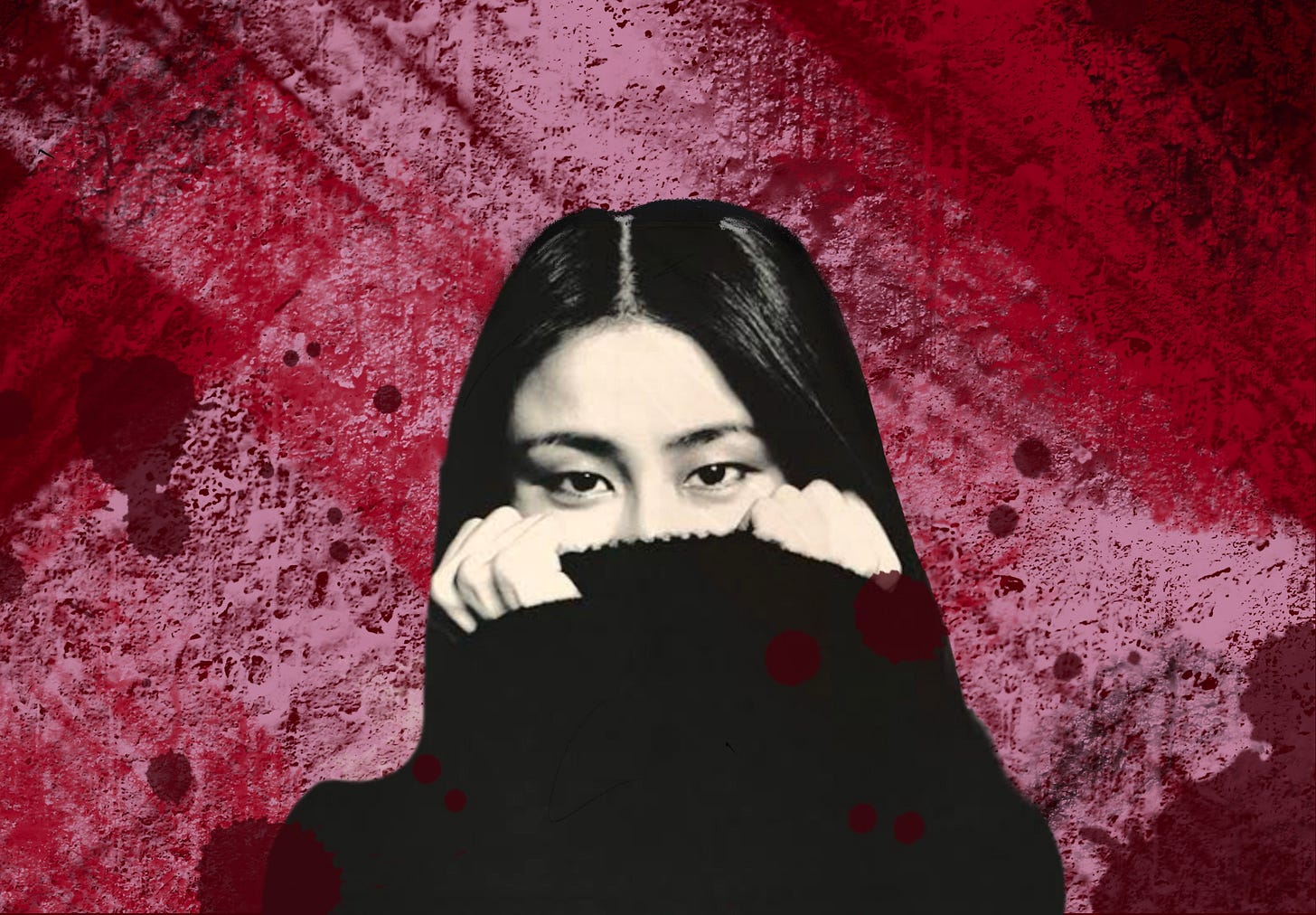The foundations of Drinking Notes are built on pairing great music with great wine. It’s been nearly a year since our last post of this kind so today I’m bringing it back! For those of you who only know us as serious, ground-breaking essayists, links to our previous song and wine pairings can be found below. This week, I’m taking a look at a summer earworm from 1978 that more than deserves a revival.
#1: A haunting sensation - Riders on the Storm & Northern Rhône Syrah
#2: A toast to the apocalypse - November Has Come & English sparkling wine
#3: Gabor’s dreamy fruit drifts - Galatea’s Guitar & Xinomavro
#4: An acapella nightcap - Once Was A Time I Thought & Rainwater Madeira
#5: Out of winter’s desert - Red Blooms & Australian Pinot Noir
#6: What’s your poison? - Toxic & Grüner Veltliner
#7: Painting it blue - Solid Air & Chile’s Bordeaux blends
Enter Taeko Ōnuki, the voice of Tokyo’s city pop scene in the 1970s and ’80s – and the sound of summer 2025, as far as I’m concerned. Her 1978 hit “4:00A.M.” begins hot, even a little clammy. A meandering flute flirts with your ear, as if it might slip a tongue inside. Then comes the synthesiser, the ultimate instigator of sultriness, turning the night into a sort of sexy, sci-fi fever dream. Thirty seconds in, Taeko arrives on the scene, and the song is suddenly lifted up as if by a puff of air. Things are starting to cool down.
The rhythm section spends the first verse collectively catching its breath. Taeko’s voice, meanwhile, is whistle-clean. It has an innocuous charm. It’s disarming yet reassuring, and strangely recognisable even on first listen. By no means powerful, her voice still holds its own amidst the hubbub of funky orchestration. A strength-to-weight ratio of carbon fibre.
“4:00A.M.” is a mixing bowl of musical genres. Pop bleeds into jazz, into funk, into disco. It would be easy to file this number under pastiche, a playful game of imitation. There are dashes of Chaka Khan here and there, some Off the Wall-era Michael Jackson too. Yet, sitting right in the middle of them both, stylistically and chronologically, is Taeko Ōnuki.
Unlike the day I first discovered Taeko, my initial foray into Japanese wine was a little underwhelming. A half bottle of 2023 Takeda Winery Rouge felt thin and lifeless, even a little morose, as if it was struggling to cope with the weight of expectation (I’m not that hard to please). That was until its temporary exile to the fridge. Time spent in the company of shredded cabbage, leftover miso paste, and cans of Kirin had done wonders for it. No longer was it sullen and lacklustre, but suddenly bright and refreshing. More importantly, it was interesting.
Takeda Rouge is a 2.5 tog duvet. It will do little to keep you warm in the winter months, but come summertime, it’s an essential piece of kit. At 10.5% abv, it’s also a mere welterweight compared to most reds. But what it lacks in bulk and power, it makes up for in footwork and agility.
From the Northern Honshū prefecture of Yamagata, the wine owes its existence solely to Muscat Bailey A, a grape that sounds like it also has a solid future as a jazz singer. In the here and now, it’s Japan’s most planted variety. Thick-skinned and hardy, it’s built to cope with the frost, but upon tasting it you would never know that. Like Taeko’s voice, there’s a lightness to the wine, a gentle, lilting joy.
Takeda Rouge doesn’t have the same obvious complexity as found in Onuki’s track. The tasting powers that be would describe it as “simple”. There is no modulation of flavour, no syncopated top notes; the tannins are a no-show and even the acidity is content with sitting quietly in the corner. An exhibition on stepping back and listening. Instead the fruit does all the talking. Cherries in lozenge form, strawberry-flavoured candy floss minus the hairball texture. Intricacy dethroned by youthful nonchalance.
What they do have in common is that both song and wine are moreish to the point of being irresistible. “4:00A.M.” is a box of surprises. It takes you places you didn’t know you wanted to go. Each musical switch-up is enlightening, not disorientating. The gospel-like call of Lord give me one more chance demands a response. Taeko duly obliges. During my first encounter with the wine, it made a similar plea. Don’t give up on me just yet. As I drained the last of that 375ml in record time, I found its redemption arc inspiring.
When the track feigns to fade out, it leapfrogs any clichéd ending, landing feet first in a semi-improvised breakdown. Piano and bass are heavy-handed, almost swampy; a guitar howls, blurring the lines between pain and ecstasy. Brass and bongos keep us rooted in rhythm. You can picture the ensemble of players. Stank-faced, bobbing their heads. Taeko is front and centre, her hair swaying across her face, spinning the mic stand on its heel even though she knows she’s done her bit.
Neither does the Rouge simply fall away with a diminuendo of fruit. The summer berries are steadfast but there’s also a slight ferrous quality, the taste of copper pennies or a minor cut still bleeding. Whichever floats your boat most.
Within five and half minutes, Taeko and Takeda have successfully turned a sweaty and irritable night into one of joy and groove. The hot and sticky foundations of pop-funk are worth the sweat marks and mosquito bites, just as the stained tongue and teeth are necessary collateral for a taste of summer in all its chilled red glory.




Just listened to Taeko- wow, so much going on in that track! Loving the pairing revival and your silky smooth ( as Colin Jackson would say) writing! Keep writing, you have a gift!